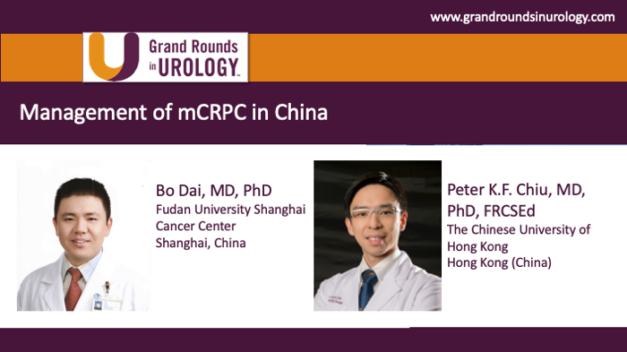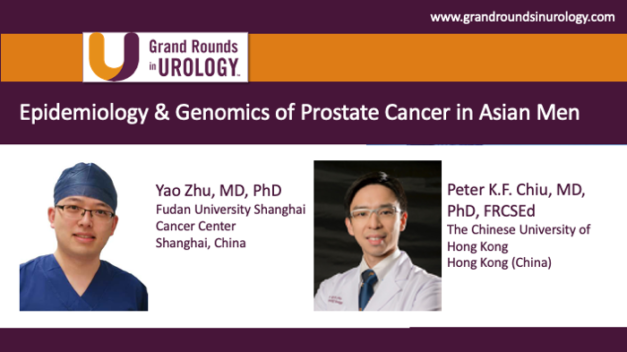Management of mCRPC in China
Bo Dai, MD, PhD, Chief Physician and Director of the Department of Urology at Fudan University Shanghai Cancer Center, gives an overview of how metastatic castration-resistant prostate cancer (mCRPC) is managed in China. He explains that docetaxel, abiraterone, and enzalutamide are the only treatments available in China despite the proven effectiveness of other drug treatments. He references the PROfound study, which proved the effectiveness of olaparib, an FDA-approved drug which is available for metastatic ovarian cancer, but not mCRPC as of yet. Dr. Dai also reviews unmet treatment needs, including a lack of knowledge of the optimal treatment sequence, a need for overall survival improvement in the population of mCRPC patients in China, a lack of treatment urgency, and a lack of treatment affordability. He then shares data from Chinese studies on abiraterone and GT0918, which have both been found to produce positive results in patients. Dr. Dai concludes by discussing how abiraterone has become the most common mCRPC drug treatment due to it being produced in China.
Read More

